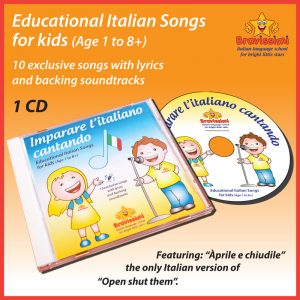-
Games
 Games are fun, interactive, and social. Games can also be effective tools for learning. Here are the top 5 reasons why:
Games are fun, interactive, and social. Games can also be effective tools for learning. Here are the top 5 reasons why:1. Games can help children lose their inhibitions
When children are drawn into a game they will begin to learn before their inhibitions to do with learning have time to kick in.2. Games provide a safe environment for practice and feedback.
In a fun and safe environment children feel more comfortable to try new things without serious consequences.3. Fun Games can be very memorable and help with retention.
Games increase the ability for children to recall fun facts and new words.4. Games create strong emotions and longer lasting impressions
Strong emotions triggered by fun experiences help with learning and leave longer lasting impressions.5. Games give kids immediate reinforcement and reward for their learning.
Children can receive satisfaction following learning if it happens in the context of a fun game.
-
Songs
 Why are songs such an effective Italian language learning tool?
Why are songs such an effective Italian language learning tool?1. Use of everyday language and colloquial speech.
Most language used in songs is casual and usable in everyday speech. Hearing the language in song is a great way to introduce fun phrases and expressions.2. Songs get stuck in your head.
The repetitive sounds and patterns in a song make it easier for them to get stuck in your head. You have probably experienced this yourself. When teaching a new language this byproduct of hearing a catchy song can help children retain and memorise new phrases they are hearing in the lyrics.3. Songs create emotion.
We create strong relationships with our favourite songs. A good song will unlock our emotions and enhance our well-being both mentally and physically. So when something affects us emotionally it will also be easier for us to remember it.4. Music is an easy habit.
The best thing about music is that it is not boring. Unlike reading a book listening to music can be effortless and is fun to do in the car or around the house. Because it is such an easy habit to get into you can introduce learning without it feeling like a chore.5. Music introduces you to culture.
Many Italian songs are about topics that are important to Italian culture. As lyrics begin to be understood children will also come to understand how Italian people feel and think.
-
Art
 Creating Art is very important in the development of Children, here is why:
Creating Art is very important in the development of Children, here is why:1. It Helps Motor Skills
The motions children use when making art, such as holding a paintbrush or drawing with a crayon, are very important to the growth of their motor skills. For example around age three developments should include drawing a circle and beginning to use safety scissors. Around age four, they may be able to draw a square and start to cut straight lines with scissors. Bravissimi preschool programs emphasize the use of scissors because it develops the dexterity children will need for writing.2. Art Helps Language Development
Sometimes for toddlers the act of making art—even talking about it—gives opportunities for them to learn news words for colours, shapes and actions. When toddlers are as young as a year old, parents at home can do simple activities such as crumpling up paper and calling it “palla” a ball. By primary school, children start to use descriptive words to discuss their own artwork and even talk about what feelings they have when they see different styles of artwork.3. Art Helps Inventiveness
Children whoa are encouraged to express themselves and take risks when creating art are more likely to develop a sense of innovation which helps their interest in learning. Art can encourage children to think about how to make things better and inspire them to keep learning.4. Art Increases Cultural Awareness
Every culture has its own art styles and practices influenced by its history. Giving children art projects like painting and sculpture is a great way to teach them about the origins and history of a culture like Italian in a way that is fun, creative and hands on.5. Art Improves Academic Performance
Studies have shown there is a correlation between children who engage in art and have success in other academic areas. For example children who participate regularly in art activities are more likely to get recognition in other areas such as maths and science then those who don’t participate in art activities.
-
Dance
 When it comes to music and moving, children embrace the fun of dancing to the beat and creating their own interpretation of songs. These are the top benefits of dance education for children:
When it comes to music and moving, children embrace the fun of dancing to the beat and creating their own interpretation of songs. These are the top benefits of dance education for children:1. Dance education enhances physical, emotional, and social skills
Young children will benefit from age appropriate instruction that helps their emotional, physical and social skills.2. Dance brings music and art to life for children
Dance encourages self-expression, creativity, and helps increase a child’s imagination through creative movement. Many young children first experience the love of learning through music and dancing. Usually children feel a sense of accomplishment after dancing together in a class.3. Dance is story telling through movement.
Dance is a great way to encourage children to begin expressing themselves through art. Overtime children start to build their skills through understanding how the rhythm of a song relates to the visual art of dancing. Children can use dance to reflect their uniqueness and in a group can use creating a dance as a way to deepen their appreciation for dance as its own art.4. Dance enhances the love of learning
By participating in dance young children experience unique joys as a performer through the encouragement of self expression. It inspires them to try new things and master skills that benefit them in other activities at home or at school.
-
Puppets
 We know children are more willing to learn when they are having fun. We use puppets as a gateway to opening up their mind and inviting knowledge in. Here is why Puppets are an effective teaching aid for children:
We know children are more willing to learn when they are having fun. We use puppets as a gateway to opening up their mind and inviting knowledge in. Here is why Puppets are an effective teaching aid for children:1. Puppets stimulate imaginations
For young children seeing puppets can help to boost their creativity and stimulate their imagination. When a child’s imagination runs wild they are developing skills that will help them with everyday life without them even realising it.2. Puppets captivate attentions
Sometimes Pre-school children between the ages one to three, can be overly active and easily irritable. Using puppets are perfect for capturing their attention, this is because they are fun, safe and a progression from educational cartoons they are likely to see at home.3. Puppets encourage sharing
Puppets are interactive which encourages children to engage in the learning process. Puppets are a great tool for children to share or retell what they have been learning or observing. When puppets are used with other play based learning such as dance and games children are even more likely to retain what they learn.4. Puppets help communication
Watching two puppets animatedly speaking to each other can help lower the inhibitions of children and encourage them to initiate conversation. Children can learn different communication techniques by watching puppets which they can then apply to their real life.5. Puppets help language skills development
Primary school aged students can benefit greatly from puppets as when a puppet speaks children are more likely to listen, identify, and understand different words and phrases as they are performed by their teacher who can stress proper enunciation and pronunciation. This helps especially with their oral and language skills development.
-
Drama
 These are the main benefits of using Drama and Theatre Education to teach children:
These are the main benefits of using Drama and Theatre Education to teach children:1. Drama teaches Self-Confidence
By performing children learn to take risks and trust their ideas and abilities. The confidence they learn from performing will help them in every aspect of their future.2. Drama Enhances Concentration
By playing, practicing, and performing children will develop a new focus of mind, body, and voice which helps with other areas of life including school and learning a new language.3. Drama Helps Communication Skills
When children participate in drama it enhances their verbal and nonverbal expression of ideas. Children learn how to project their voice and articulate and speak fluently.4. Drama Helps Memory
By rehearsing and performing children have to learn words, movements, and cues which helps strengthen their memory skills like working a muscle.5. Drama Increases Social Awareness
Stories and plays explored in drama can teach students about social issues and conflicts from the past, present and other parts of the world. By acting roles from different situations, time periods, and cultures children learn compassion and tolerance for others.
-
Enquire Now
Help your Star to become a Bilingual Superstar!
All in a playful and Italian environment. Lots of fun for little stars!




 Bravissimi head office:
1 / 93 McNamara Avenue
Airport West VIC 3042
CALL: (03) 9338 0831
EMAIL: ciao@bravissimi.com.au
Bravissimi head office:
1 / 93 McNamara Avenue
Airport West VIC 3042
CALL: (03) 9338 0831
EMAIL: ciao@bravissimi.com.au